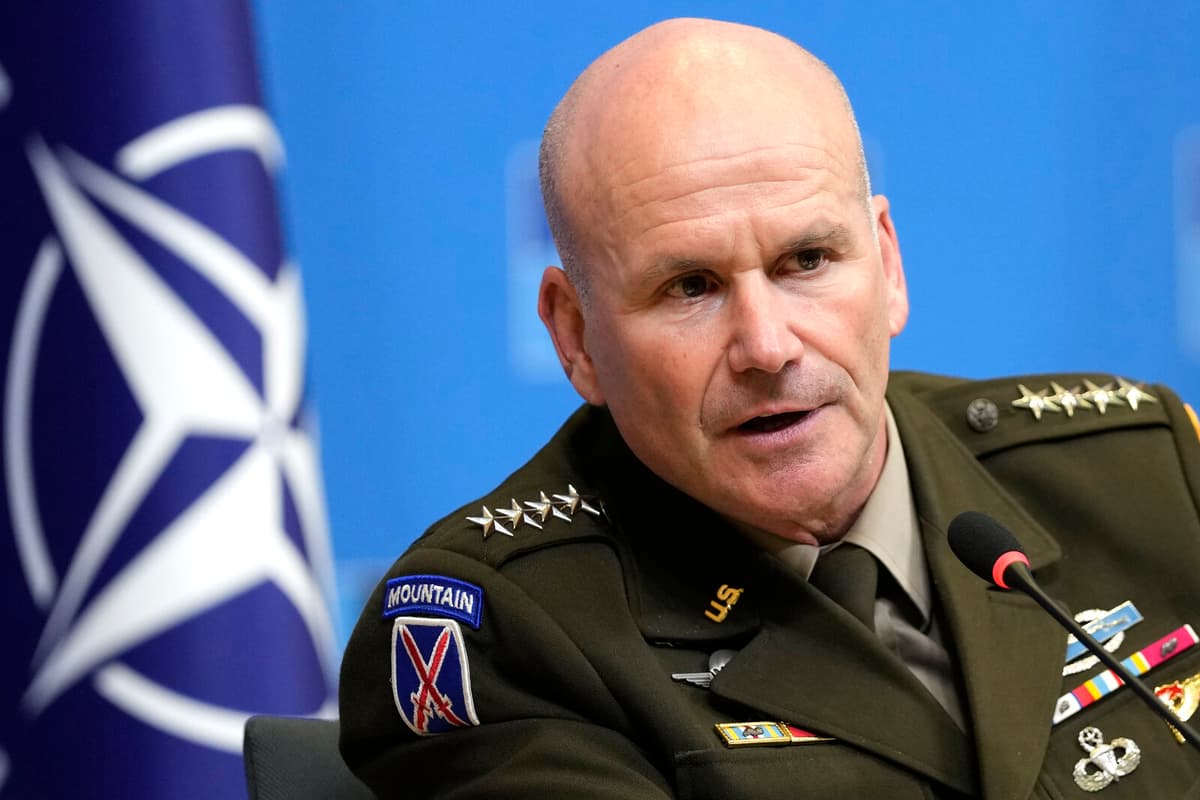Chris Cavoli, NATO's military commander in Europe, says in a speech at Folk och försvar in Sälen that it's going "very well" for Sweden in NATO, but that it has now become apparent to politicians that membership is not a final destination.
It requires continued investments in human capital, political capital, and financial capital, he says.
Cavoli praises Sweden for allocating 2.6 percent of GDP to defense by 2028. Like several other assessors, he does not believe it will be enough in the future.
The specific capability goals that NATO is now introducing will require more than 2 percent, more than 2.6 percent, across the entire alliance. I think it's something that's starting to sink in for everyone now, he says.
Would be challenging
Sweden will receive its new capability goals from NATO, also called capability targets, this fall.
Supreme Commander Michael Claesson states that Sweden's capability targets will be discussed at several NATO meetings during the winter and spring.
It's a bit too early to say to what extent this will challenge existing plans, says Claesson.
What is most challenging is if we were to get a capability target that requires a completely new capability. Something we don't have at all or even have an embryo of.
It would, according to the Supreme Commander, likely be challenging both in terms of time and resources.
Claesson comments on Cavoli's statement that a defense budget of 2.6 percent of GDP will not be enough as follows:
I don't want to, as a government agency head, preempt what the government will decide on this issue.
Ordered process
He states, however, that it's no secret that Europe will need to take greater responsibility for its own security. The US is expected to reduce its military engagement in Europe under President Donald Trump.
No matter what the Americans decide, the demands will increase on Europe, and it will naturally also lead to a discussion, which it already has, about setting new goals regarding percentage of GDP.
Is there a risk that the Riksdag's defense decision for 2025-2030 will need to be adjusted?
For me, it's extremely important that we don't end up in a situation where we're dismantling everything. That we can have two thoughts in our heads, says Claesson.
That we implement and build capability and at the same time have a national discussion, with authorities and the government, but also that Sweden, together with other NATO allies, has an ordered process going forward.






